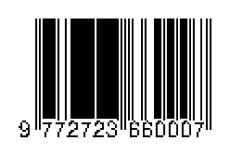Blue Economy from Perspective of Al-Qur'an
DOI:
https://doi.org/10.59141/jiss.v5i04.1096Keywords:
Ocean Resources, Blue Economy, Sustainable Development, Al-Qur'anAbstract
This research concludes that from the Al-Qur'an perspective, the
maritime concept with a blue economy perspective is an integral
approach, where the utilization of marine resources, which are
referred to as al-Bahr and al-yam in the Al-Qur'an, needs to integrate
several aspects interrelated maritime affairs. Reduction of one
maritime aspect can result in ineffectiveness in dealing with the
complexity of maritime problems as a whole.
The framework used in this research includes the following aspects:
First, Aqidah: Humans are seen as caliphs who are responsible for
the universe that Allah rules. Second, Sharia: Maritime natural
resource utilization activities must be in accordance with the
principles of Islamic law. Third, Morals: Improvement with adaptive
innovation for the efficiency of natural resources, fair distribution,
and consumption that does not damage or waste natural resources.
This research supports the views of several figures such as Robert
Maltus, Langdon Gilkey, Seyyed Hossein Nasr, Donella H. Meadow,
Arne Naess, Edith Brown Weiss, and Gunter Pauli, who emphasize
the need for wise management of natural resources for
sustainability. The research method used is a qualitative method
with the Tafsir Maudū'i (thematic) interpretation method.
This research differs from the views of several figures, such as Hugo
Grotius, Adam Smith, David Ricardo, Immanuel Kant, and Garret
Hardin, who have different views regarding natural resource
management. Thus, this research proposes a holistic approach based
on Islamic values in viewing and managing marine resources to
achieve economic and environmental sustainability.
Published
How to Cite
Issue
Section
License
Copyright (c) 2024 Ahmad Hery Sultoni, Hamdani Anwar, Nur Arfiyah Febriani

This work is licensed under a Creative Commons Attribution-ShareAlike 4.0 International License.
Authors who publish with this journal agree to the following terms:
- Authors retain copyright and grant the journal right of first publication with the work simultaneously licensed under a Creative Commons Attribution-ShareAlike 4.0 International. that allows others to share the work with an acknowledgement of the work's authorship and initial publication in this journal.
- Authors are able to enter into separate, additional contractual arrangements for the non-exclusive distribution of the journal's published version of the work (e.g., post it to an institutional repository or publish it in a book), with an acknowledgement of its initial publication in this journal.
- Authors are permitted and encouraged to post their work online (e.g., in institutional repositories or on their website) prior to and during the submission process, as it can lead to productive exchanges, as well as earlier and greater citation of published work.















